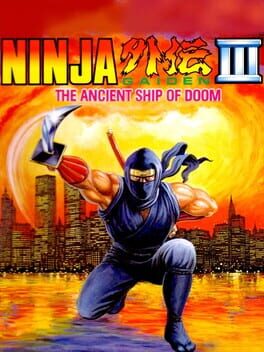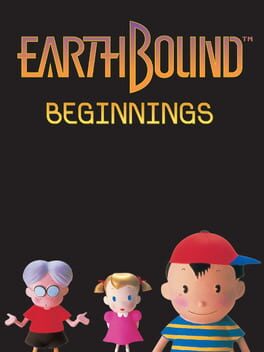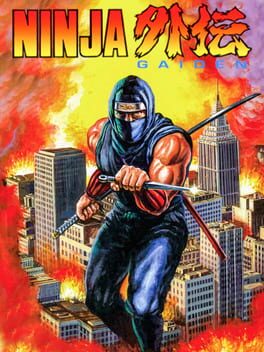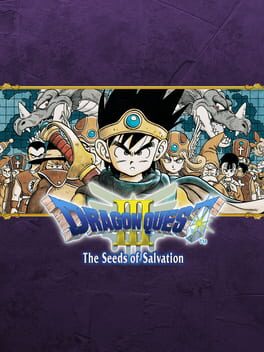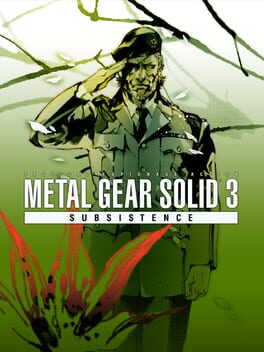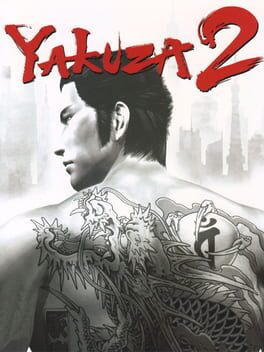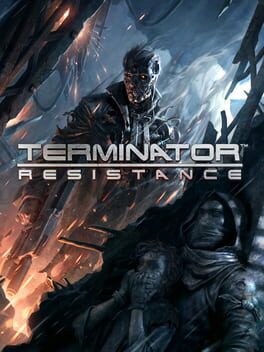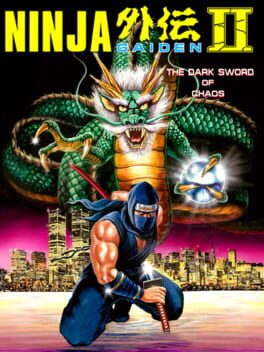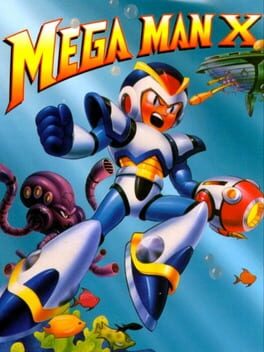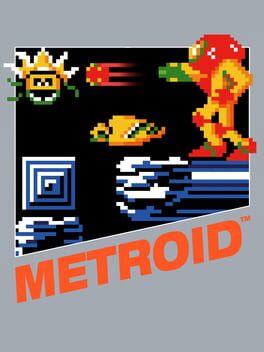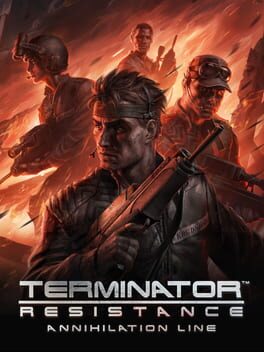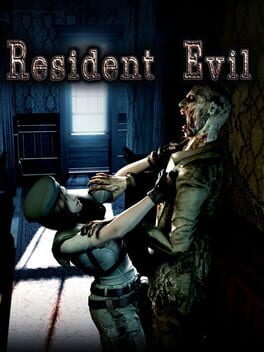behelitbebop
1994
In his excellent video review/retrospective from around a decade ago, youtuber Derek Alexander of Stop Skeletons From Fighting (formerly the Happy Video Game Nerd) describes Shigesato Itoi's Earthbound (known in Japan as Mother 2) as "criminally underrated" and "one of the greatest games ever made." The first statement is, happily, no longer correct in the year of 2022. Sure, back when the video was made, Earthbound (and the Mother series as a whole) was a more niche title, heck the only reason I found out about the game and decided to give it a go was through Derek and this video. At this point in time, though in the larger gaming sphere its probably still relatively niche compared to titles like Call of Duty and Fortnite, in the JRPG sphere Earthbound is much more well-known and accessible, thanks to it being released on New 3DS XL and Wii U Virtual Consoles, SNES Mini, and Switch Online Virtual Consoles. The second claim is correct, though I found the reasoning Derek provided in the video was lacking. He claimed that the reason that Earthbound was better than most RPGs is that it has a modern setting and you are playing as a normal young boy and not some medieval, chosen hero. Modern settings in JRPGs are nothing new. They were present in the 90s when Mother 2 came out with titles like Shin Megami Tensei (though you could argue that while it begins in a modern setting, it delves into post-apocalyptic territory quite quickly) and Live A Live (though you could also counter that only a single scenario out of multiple takes place in the modern day). RPGs with modern settings are also present in the current day, with series like Persona taking place in modern day school settings since its inception in 1996 and going on to the recent release of Persona 5 Royal in 2019. I would argue that this was and still is not as unique as many tout it to be. The second point, that you play as a normal boy and not a chosen hero, is false in a few ways. Firstly, technically Ness is a chosen hero, as he was prophesized to defeat Giygas by the Apple of Enlightenment. Its not as prominent of a prophecy or as driving of a force in the plot as in games like Dragon Quest, but its still there. Second, while the trope can be oversaturated in the genre, the claim made implies that the chosen hero archetype is not good inherently, which I definitely disagree with. Such a trope is put to excellent use in games like Dragon Quest III, with Loto/Erdrick growing into that role by becoming a more worldly individual (see my DQ III review for more), but I digress. None of this is at all meant to be an attack on Derek or SSFF, they are one of my favorite channels on YouTube and Derek as the HVGN is one of the three people I credit for helping to foster my love for retro gaming (the others being James Rolfe and NintendoCapriSun). His video on Earthbound is excellent and honestly one of the best he has put out on his channel. The reason I go so in-depth in the beginning of this discussion on the reasons why he loves Earthbound is because rewatching his video made me reflect on why I adore the Mother series and Earthbound so much.
To me, Earthbound stands the test of time not because of originality of setting or of protagonist, but by virtue of its central values of love and empathy. There is no other JRPG series I have experienced that has approached its characters with the level of sincere kindness, empathy, and understanding as the Mother series. In Earthbound, and the Mother series as a whole, Itoi rarely if ever characterizes the enemies you fight as being wholly and purely evil. Characters like Frank or Everdred attack you but you get the sense that they are testing you more than anything. Mr. Carpainter and Geldegarde Monotoli are corrupted by idols or money and under Giygas' influence conduct their terrible deeds, but when you remove the influence they are repentant. Animals and other living creatures that you fight are not "killed," they "become tame." While many have jokingly (or not) chastised games like Pokemon for not having the balls to have their cute little animals die in battle, this fact is thematically relevant in Earthbound since the animals and other creatures are under the influence of Giygas and are otherwise innocent, and its telling of Ness and his friends' compassion that they would not outright kill these opponents.
This humanization of villainous characters is seen most poignantly in Pokey/Porky and Giygas/Giegue. Pokey was already quite an annoying child, and under the influence of Giygas he becomes a constant, nagging thorn in Ness' side throughout the entire game, becoming Giygas' right hand man until the end. Yet, from the beginning he is humanized as when you return him to his house next door after the meteor first crashes, you see signs of abuse in his mother and father when you talk with them. Later on, in Magicant, Pokey appears alone on a bench, saying:
"Ness, you're so lucky...I envy you. Let's be friends forever, alright?"
One could interpret this as the true Pokey appearing to Ness in Magicant, revealing that his true feelings underneath all the villainy and evil deeds are those of a boy abused by his family who just wants the love of a friend. This leaves out the fact that Magicant is a place in Ness' mind and the people, objects, and animals there are more like manifestations of Ness' memories of them. This does not discount the above analysis though, as with this context it can be inferred that the Pokey in Magicant is how Ness views Pokey, which not only hints at the greater truth of his character described above yet never explicitly stated by Pokey himself but also further reinforces the empathy that Itoi imbues in this character. Through all the evil antics, annoying laughter, and attempts to sabotage their journey, Ness sees Pokey as just a lonely and sad child, reaching out for love (an idea perfectly bridged into Mother 3, where in his domain in New Pork City we see a collection of nostalgic items and vehicles from Earthbound, showing that even when Pokey supposedly becomes the ultimately evil Porky, he has retained this human desire for love and companionship and is still holding on to the memory of Ness and his journeys).
The same can be said of Giygas. In Mother (Itoi's magnum opus), Giegue is defeated by Ninten and co through the power of love via the lullaby of Queen Mary, revealed to be Giegue's surrogate mother, Maria, and Ninten's grandmother. In Earthbound, as Giygas, he is torn apart at the reminder of the loss of his mother, and without this mother's love, spirals out of control into an unrecognizable and incomprehensible being of supposedly pure evil, corrupting the creatures of Earth. During the final confrontation, Pokey claims:
"So, isn't this terrifying? I'm terrified too. Giygas cannot think rationally anymore, and he isn't even aware of what he is doing now. His own mind was destroyed by his incredible power. What an all-mighty idiot! Yep, that's what he is! Heh heh heh heh... and you... you will be... just another meal to him!"
Giegue has become Giygas, the all-mighty evil power, and has lost all rationality or agency, needing to be contained by the Devil's Machine...or so the game initially claims. Throughout the final battle, Giygas cries out for Ness, and one of his dialogues is just "...friends..." You could argue that him calling out for Ness is this irrational being still grasping at the last bits of rationality left to focus all of his chaotic evil energy on his goal of defeating Ness to prevent the prophecy of the Apple of Enlightenment, but I see Itoi's empathetic hand in this. Here, Giygas is still wounded from the painful memories of losing Maria, and rather than grow and move forward, he has become distorted and is in many ways like Pokey: a lonely being seeking friendship and love.
Love is the core theme of Earthbound and the Mother series as a whole. There is a reason it is called Mother, after all. The love of not only individual human mothers but Mother Earth permeates the series and is especially poignant in Earthbound. In the same way that heroes like Erdrick in Dragon Quest III mature and become a hero by traveling the world and becoming more worldly, Ness matures and becomes more worldly by traveling all around Eagleland and gathering the Eight Melodies from various "Your Sanctuary" locations, all different places around the Earth. The center of the circle of locations when you bring up the Sound Stone in your inventory looks like the Mother Earth from the logo for the series, further emphasizing Ness gathering the love of Mother Earth to use as his power. Ness gains his power and strength from coming of age: leaving home, venturing off into the great unknown, gaining many friends and companions, yet he always keeps the love of his mother back at home close to his heart, even though he is away. By contrast, Giygas, due to the loss of Maria and his intense pain and anguish, cannot recognize that no matter how far away from him, or whether she is living or dead, Maria's love for him endures. He is too haunted by the pain and loss that he regresses into an incomprehensible mess of emotions, like that of a child, emotions lacking the the logical construction and consistency of maturity. Inside the Devil's Machine, he is a veritable "Boy in the Bubble" of his own regression. A widely circulated fan theory, and one debunked by Itoi himself, is that Giygas' sprite, when viewed in the negative, resembles a fetus. While this was confirmed as not being intentional by Itoi, it fits: Giygas has regressed so much that he is like a fetus, caught in the past of when he was a baby raised by Maria and tormented by the loss that he cannot move forward. Ness and Giygas are perfect foils, and ultimately Ness and co defeat him with prayers sent out to all of your friends and, most importantly, Ness' mother, freeing Giygas from his incomprehensible pain and destroying him with love, in what could be considered euthanasia.
This is what sets Itoi's masterpieces apart from the rest. Earthbound's characters are imbued with such strong love and friendship that you cannot help but love them. Itoi writes his villains with empathy and understanding, not in a hackneyed and overdone "You and I are not that different" manner but in a sincere and vulnerable manner. No other games or JRPGs explore the importance and power of love quite like this one.
Earthbound and Itoi's legacy is not one of quirky dialogue or outlandish difference. It is a melody of love.
To me, Earthbound stands the test of time not because of originality of setting or of protagonist, but by virtue of its central values of love and empathy. There is no other JRPG series I have experienced that has approached its characters with the level of sincere kindness, empathy, and understanding as the Mother series. In Earthbound, and the Mother series as a whole, Itoi rarely if ever characterizes the enemies you fight as being wholly and purely evil. Characters like Frank or Everdred attack you but you get the sense that they are testing you more than anything. Mr. Carpainter and Geldegarde Monotoli are corrupted by idols or money and under Giygas' influence conduct their terrible deeds, but when you remove the influence they are repentant. Animals and other living creatures that you fight are not "killed," they "become tame." While many have jokingly (or not) chastised games like Pokemon for not having the balls to have their cute little animals die in battle, this fact is thematically relevant in Earthbound since the animals and other creatures are under the influence of Giygas and are otherwise innocent, and its telling of Ness and his friends' compassion that they would not outright kill these opponents.
This humanization of villainous characters is seen most poignantly in Pokey/Porky and Giygas/Giegue. Pokey was already quite an annoying child, and under the influence of Giygas he becomes a constant, nagging thorn in Ness' side throughout the entire game, becoming Giygas' right hand man until the end. Yet, from the beginning he is humanized as when you return him to his house next door after the meteor first crashes, you see signs of abuse in his mother and father when you talk with them. Later on, in Magicant, Pokey appears alone on a bench, saying:
"Ness, you're so lucky...I envy you. Let's be friends forever, alright?"
One could interpret this as the true Pokey appearing to Ness in Magicant, revealing that his true feelings underneath all the villainy and evil deeds are those of a boy abused by his family who just wants the love of a friend. This leaves out the fact that Magicant is a place in Ness' mind and the people, objects, and animals there are more like manifestations of Ness' memories of them. This does not discount the above analysis though, as with this context it can be inferred that the Pokey in Magicant is how Ness views Pokey, which not only hints at the greater truth of his character described above yet never explicitly stated by Pokey himself but also further reinforces the empathy that Itoi imbues in this character. Through all the evil antics, annoying laughter, and attempts to sabotage their journey, Ness sees Pokey as just a lonely and sad child, reaching out for love (an idea perfectly bridged into Mother 3, where in his domain in New Pork City we see a collection of nostalgic items and vehicles from Earthbound, showing that even when Pokey supposedly becomes the ultimately evil Porky, he has retained this human desire for love and companionship and is still holding on to the memory of Ness and his journeys).
The same can be said of Giygas. In Mother (Itoi's magnum opus), Giegue is defeated by Ninten and co through the power of love via the lullaby of Queen Mary, revealed to be Giegue's surrogate mother, Maria, and Ninten's grandmother. In Earthbound, as Giygas, he is torn apart at the reminder of the loss of his mother, and without this mother's love, spirals out of control into an unrecognizable and incomprehensible being of supposedly pure evil, corrupting the creatures of Earth. During the final confrontation, Pokey claims:
"So, isn't this terrifying? I'm terrified too. Giygas cannot think rationally anymore, and he isn't even aware of what he is doing now. His own mind was destroyed by his incredible power. What an all-mighty idiot! Yep, that's what he is! Heh heh heh heh... and you... you will be... just another meal to him!"
Giegue has become Giygas, the all-mighty evil power, and has lost all rationality or agency, needing to be contained by the Devil's Machine...or so the game initially claims. Throughout the final battle, Giygas cries out for Ness, and one of his dialogues is just "...friends..." You could argue that him calling out for Ness is this irrational being still grasping at the last bits of rationality left to focus all of his chaotic evil energy on his goal of defeating Ness to prevent the prophecy of the Apple of Enlightenment, but I see Itoi's empathetic hand in this. Here, Giygas is still wounded from the painful memories of losing Maria, and rather than grow and move forward, he has become distorted and is in many ways like Pokey: a lonely being seeking friendship and love.
Love is the core theme of Earthbound and the Mother series as a whole. There is a reason it is called Mother, after all. The love of not only individual human mothers but Mother Earth permeates the series and is especially poignant in Earthbound. In the same way that heroes like Erdrick in Dragon Quest III mature and become a hero by traveling the world and becoming more worldly, Ness matures and becomes more worldly by traveling all around Eagleland and gathering the Eight Melodies from various "Your Sanctuary" locations, all different places around the Earth. The center of the circle of locations when you bring up the Sound Stone in your inventory looks like the Mother Earth from the logo for the series, further emphasizing Ness gathering the love of Mother Earth to use as his power. Ness gains his power and strength from coming of age: leaving home, venturing off into the great unknown, gaining many friends and companions, yet he always keeps the love of his mother back at home close to his heart, even though he is away. By contrast, Giygas, due to the loss of Maria and his intense pain and anguish, cannot recognize that no matter how far away from him, or whether she is living or dead, Maria's love for him endures. He is too haunted by the pain and loss that he regresses into an incomprehensible mess of emotions, like that of a child, emotions lacking the the logical construction and consistency of maturity. Inside the Devil's Machine, he is a veritable "Boy in the Bubble" of his own regression. A widely circulated fan theory, and one debunked by Itoi himself, is that Giygas' sprite, when viewed in the negative, resembles a fetus. While this was confirmed as not being intentional by Itoi, it fits: Giygas has regressed so much that he is like a fetus, caught in the past of when he was a baby raised by Maria and tormented by the loss that he cannot move forward. Ness and Giygas are perfect foils, and ultimately Ness and co defeat him with prayers sent out to all of your friends and, most importantly, Ness' mother, freeing Giygas from his incomprehensible pain and destroying him with love, in what could be considered euthanasia.
This is what sets Itoi's masterpieces apart from the rest. Earthbound's characters are imbued with such strong love and friendship that you cannot help but love them. Itoi writes his villains with empathy and understanding, not in a hackneyed and overdone "You and I are not that different" manner but in a sincere and vulnerable manner. No other games or JRPGs explore the importance and power of love quite like this one.
Earthbound and Itoi's legacy is not one of quirky dialogue or outlandish difference. It is a melody of love.
1988
"Ryu, be always brave...."
Ninja Gaiden is one of the best games on the NES and one of the best games period, but is undeniably one of the tougher entries to grace the original NES. Much of the game's infamous reputation for difficulty is owed to the final act. While the game has a steady and fair difficulty curve in the first five acts, Act VI ramps things up to insane levels, featuring two or three of the most difficult jumps/sections in the entire game, way more enemies than usual, and a three-form final boss that will boot you back to 6-1 if you fail. Moreover, while the final boss will start you on the form you died on upon return, your health from the stage will not be refilled upon reaching him. In this sense, its easy to say that you might as well reset the game if you can't beat him in one run, but like the rest of the game, with enough determination and focus you can beat each of his forms even separately. This aspect was not the only tough part of Ninja Gaiden, but it is easily the most difficult part for me.
Despite this, I still adore this game. Anyone who knows me knows that I love difficult games. Dancing on that razor's edge between adrenaline-pumping intensity and full-on, manic, seeing-red rage is one of my favorite feelings and is up there with eating extremely spicy food as my anti-drug. The best part of this game is that it really dances on that edge for me: its definitely really tough but its just tough enough where you still want to keep going. It dares you to finish it, just one more continue, just one more play, focus enough and you will make it! Ninja Gaiden boasts the ultimate concession and the best part of the best difficult games: unlimited continues! This prevents the game from delving into that horrible-hard territory with the likes of Silver Surfer. Ninja Gaiden with its unlimited continues, I would argue, wants you to finish it.
If you have the patience to withstand its tests of your will, then you will find one of the best NES games of all time. Boasting amazing cutscenes with some of the greatest shots I have seen in an NES game (or any game for that matter, the arrival at Jaquio's castle and the sunset ending come to mind), some of the best music on the system, and a legitimately compelling story for the time, this game is incredibly rewarding for anyone with the patience and determination to hone their ninja skills.
Ninja Gaiden is one of the best games on the NES and one of the best games period, but is undeniably one of the tougher entries to grace the original NES. Much of the game's infamous reputation for difficulty is owed to the final act. While the game has a steady and fair difficulty curve in the first five acts, Act VI ramps things up to insane levels, featuring two or three of the most difficult jumps/sections in the entire game, way more enemies than usual, and a three-form final boss that will boot you back to 6-1 if you fail. Moreover, while the final boss will start you on the form you died on upon return, your health from the stage will not be refilled upon reaching him. In this sense, its easy to say that you might as well reset the game if you can't beat him in one run, but like the rest of the game, with enough determination and focus you can beat each of his forms even separately. This aspect was not the only tough part of Ninja Gaiden, but it is easily the most difficult part for me.
Despite this, I still adore this game. Anyone who knows me knows that I love difficult games. Dancing on that razor's edge between adrenaline-pumping intensity and full-on, manic, seeing-red rage is one of my favorite feelings and is up there with eating extremely spicy food as my anti-drug. The best part of this game is that it really dances on that edge for me: its definitely really tough but its just tough enough where you still want to keep going. It dares you to finish it, just one more continue, just one more play, focus enough and you will make it! Ninja Gaiden boasts the ultimate concession and the best part of the best difficult games: unlimited continues! This prevents the game from delving into that horrible-hard territory with the likes of Silver Surfer. Ninja Gaiden with its unlimited continues, I would argue, wants you to finish it.
If you have the patience to withstand its tests of your will, then you will find one of the best NES games of all time. Boasting amazing cutscenes with some of the greatest shots I have seen in an NES game (or any game for that matter, the arrival at Jaquio's castle and the sunset ending come to mind), some of the best music on the system, and a legitimately compelling story for the time, this game is incredibly rewarding for anyone with the patience and determination to hone their ninja skills.
This review contains spoilers
While I enjoy the first two Dragon Quest games for different reasons and for what each of them was trying to set out to do, the third game is really where the series starts to hit its stride and find its footing. It’s hardly a spoiler at this point, but seeing as the third game is a prequel telling the story of how the legendary hero Erdrick/Loto earned his stripes (hence the subtitle in the original Japanese: “Soshite densetsu e…” translated to “And into the legend…”), it’s only fitting that this game expanded, iterated on, and refined so many aspects of the first two games while also adding so many new features that it feels like a legendary adventure, more so than even its predecessors. I could go on about so many different aspects of the game’s design, such as the class and multiclass system, or how the game is a simple yet brilliant rendition of the Hero’s Journey, but the primary standout aspects of Dragon Quest III to me are its worldbuilding and its theme of family.
Dragon Quest games have always had rich worlds with charming characters for you to interact with (more or less depending on the game). While I and II were foundational and had good worldbuilding for their time, III really took things to the next level. If you look at the world map, it is made to resemble our own planet Earth, with similar continents. The only real outlier is the starting continent containing Aliahan, where Erdrick hails from. Following that premise, the towns on these continents resemble the different peoples and cultures of our own Earth, to some extent or another, giving the towns a rich and charming personality that other jrpgs of the time lacked. The player will travel from town to town and solve small problems in each area in little vignettes that flesh out those small encounters and tie in to the greater whole. Dragon Quest II tried this previously but in my humble opinion, III pulls this off to greater success. Through this structure, the game emphasizes the hero as a worldly person who connects people through his/her heroism, making this game being the origin story of Erdrick all the more fitting. Honestly, my only complaint is somewhat minor in that it is a retroactive one. I played XI to completion prior to finishing III, so unfortunately my opinion was somewhat colored by that game, which happened to go for a similarly varied and diverse world. Besides differences in architecture, one feature XI had was accented dialogue that would vary based on region. Architectural differences based on the town and region in III did not seem as stark as in XI, but I would probably chalk that up to hardware. I really think the devs did as best they could to diversify the world, and it shows. The dialogue in III had somewhat of a variance but not much in the way of accents, which was kind of disappointing. I was playing the fan-translated Super Famicom remake though, and if I remember correctly the mobile and Switch versions have different dialogue with similar accent variety as in XI. Again, a minor thought I had, but one I thought worth mentioning. For its time, III’s worldbuilding was ambitious, and it is definitely one of its standout aspects.
I have often discussed the Dragon Quest games at length with my best friend and we have come to the conclusion that one of the central themes present in most if not all of the mainline Dragon Quest games is family. This theme has been present ever since the original Dragon Quest and is naturally a main element of the Erdrick Trilogy specifically. In I, you play as the descendant of the hero Erdrick who must fulfill the destiny of his bloodline by vanquishing the Dragonlord, and in II you play as the descendants of the hero of I (and by extension, Erdrick) and must fulfill the destiny of your bloodline once more. II expanded on this idea with the Prince of Cannock and Princess of Moonbrooke as party members, emphasizing the relationship and shared destiny of the three cousins. III expands on this theme in the best way possible at this juncture: by personalizing it. You play as the soon to be legendary hero Erdrick, but the theme of family is not emphasized in your bloodline or your descendants, but in both the family by bond in the party you create at Ruida's Tavern and by blood in the personal relationship between you and your father, Ortega. It is often a wish of a parent to see their child succeed in life where they have failed, or otherwise just make it further than they did, and this is conveyed beautifully and touchingly in III. Ortega leaves Aliahan to defeat Baramos before the hero is even born, and throughout the adventure Erdrick is following their father’s footsteps on a journey to unite and save the world, and ultimately succeed where he failed.
My father passed away in August of 2021, after a long bout with various crippling health conditions. Despite having a complicated relationship with him, I loved him, and it was a difficult loss to deal with. Yet, through all the sorrow and pain, Dragon Quest III managed to be one of the most cathartic experiences I have had in dealing with the loss of my father, and it is because of this theme of family. Throughout the various towns, the player will encounter townsfolk who speak of Ortega’s deeds or even of meeting him before. One town is filled with people who adore Ortega, and will comment frequently on how the hero looks just like him. This reminded me of how everyone would always say I looked like my father more than my mother. It's a common and simple fact of life but nevertheless, it managed to elicit tears. Later on, you catch up with your father, but he dies before your eyes while battling the King Hydra, failing in his quest. Defeating the following bosses and then the end boss Zoma felt cathartic, not just in the sense that in-universe Erdrick was defeating the being who killed Ortega, but almost as if I was avenging the death of my own father, vowing with that action to forge on my path in life and learn the lessons he taught me. It was unexpected but incredibly moving.
Dragon Quest III is a simple, straightforward JRPG. I would almost call it the quintessential JRPG, but that title probably goes to Chrono Trigger. While innovating for its series and for JRPGs in general, its gameplay, story, and characters may be considered barebones and trite by some. Yet, this game’s charm, emotion, and vibrant world cement it as a forever masterpiece of the genre in my eyes, and a must play for any fans of JRPGs.
Dragon Quest games have always had rich worlds with charming characters for you to interact with (more or less depending on the game). While I and II were foundational and had good worldbuilding for their time, III really took things to the next level. If you look at the world map, it is made to resemble our own planet Earth, with similar continents. The only real outlier is the starting continent containing Aliahan, where Erdrick hails from. Following that premise, the towns on these continents resemble the different peoples and cultures of our own Earth, to some extent or another, giving the towns a rich and charming personality that other jrpgs of the time lacked. The player will travel from town to town and solve small problems in each area in little vignettes that flesh out those small encounters and tie in to the greater whole. Dragon Quest II tried this previously but in my humble opinion, III pulls this off to greater success. Through this structure, the game emphasizes the hero as a worldly person who connects people through his/her heroism, making this game being the origin story of Erdrick all the more fitting. Honestly, my only complaint is somewhat minor in that it is a retroactive one. I played XI to completion prior to finishing III, so unfortunately my opinion was somewhat colored by that game, which happened to go for a similarly varied and diverse world. Besides differences in architecture, one feature XI had was accented dialogue that would vary based on region. Architectural differences based on the town and region in III did not seem as stark as in XI, but I would probably chalk that up to hardware. I really think the devs did as best they could to diversify the world, and it shows. The dialogue in III had somewhat of a variance but not much in the way of accents, which was kind of disappointing. I was playing the fan-translated Super Famicom remake though, and if I remember correctly the mobile and Switch versions have different dialogue with similar accent variety as in XI. Again, a minor thought I had, but one I thought worth mentioning. For its time, III’s worldbuilding was ambitious, and it is definitely one of its standout aspects.
I have often discussed the Dragon Quest games at length with my best friend and we have come to the conclusion that one of the central themes present in most if not all of the mainline Dragon Quest games is family. This theme has been present ever since the original Dragon Quest and is naturally a main element of the Erdrick Trilogy specifically. In I, you play as the descendant of the hero Erdrick who must fulfill the destiny of his bloodline by vanquishing the Dragonlord, and in II you play as the descendants of the hero of I (and by extension, Erdrick) and must fulfill the destiny of your bloodline once more. II expanded on this idea with the Prince of Cannock and Princess of Moonbrooke as party members, emphasizing the relationship and shared destiny of the three cousins. III expands on this theme in the best way possible at this juncture: by personalizing it. You play as the soon to be legendary hero Erdrick, but the theme of family is not emphasized in your bloodline or your descendants, but in both the family by bond in the party you create at Ruida's Tavern and by blood in the personal relationship between you and your father, Ortega. It is often a wish of a parent to see their child succeed in life where they have failed, or otherwise just make it further than they did, and this is conveyed beautifully and touchingly in III. Ortega leaves Aliahan to defeat Baramos before the hero is even born, and throughout the adventure Erdrick is following their father’s footsteps on a journey to unite and save the world, and ultimately succeed where he failed.
My father passed away in August of 2021, after a long bout with various crippling health conditions. Despite having a complicated relationship with him, I loved him, and it was a difficult loss to deal with. Yet, through all the sorrow and pain, Dragon Quest III managed to be one of the most cathartic experiences I have had in dealing with the loss of my father, and it is because of this theme of family. Throughout the various towns, the player will encounter townsfolk who speak of Ortega’s deeds or even of meeting him before. One town is filled with people who adore Ortega, and will comment frequently on how the hero looks just like him. This reminded me of how everyone would always say I looked like my father more than my mother. It's a common and simple fact of life but nevertheless, it managed to elicit tears. Later on, you catch up with your father, but he dies before your eyes while battling the King Hydra, failing in his quest. Defeating the following bosses and then the end boss Zoma felt cathartic, not just in the sense that in-universe Erdrick was defeating the being who killed Ortega, but almost as if I was avenging the death of my own father, vowing with that action to forge on my path in life and learn the lessons he taught me. It was unexpected but incredibly moving.
Dragon Quest III is a simple, straightforward JRPG. I would almost call it the quintessential JRPG, but that title probably goes to Chrono Trigger. While innovating for its series and for JRPGs in general, its gameplay, story, and characters may be considered barebones and trite by some. Yet, this game’s charm, emotion, and vibrant world cement it as a forever masterpiece of the genre in my eyes, and a must play for any fans of JRPGs.
2006
I think its pretty safe to say that this is the best Terminator game, and that's simultaneously a disheartening and hopeful sentiment. This isn't a fantastic FPS by any stretch, but its fun enough and gets the job done. The gameplay is satisfying enough with guns that feel nice and enough enemy variety and scaling to make things interesting. Its greatest achievement is by far its atmosphere. Accompanied by a musical score that captures Brad Fiedel's style so well, this game really captures the "vibe" of the future flashbacks of the first two Terminator films perfectly. The final battle where you push the resistance forces towards Skynet with the main theme playing was nothing short of magical and uplifting. The game is not without its drawbacks, however. The story is serviceable at best but the characters are quite bland and unfortunately quite robotic in their mannerisms and voice, even for a videogame. The voice acting is good at best, but the real issue was the mixing. Seemingly at random, the volume of the voices would decrease sharply to little more than a whisper and I could barely hear the characters. There are also two sex scenes that are incredibly cringey. So, with a serviceable story and bland characters, really all the game has to go on is its ok gameplay and its atmosphere. When that atmosphere shines, though, it really shines. With a little more development, this game could have gone from a good game to a fantastic one, even. Despite this, if you are a Terminator fan, you owe it to yourself to give this game a shot.
This game is quite an ambitious follow-up to the original, with new additions such as stage hazards which I found to be a fun enough novelty, and the shadow clone power up, which was fun at times but quite difficult to control. The cutscenes and story is just as awesome as the original, with some breathtaking shots, and this game boasts a soundtrack just as good as the original.
Unfortunately, the hit detection in this game is much worse than the original. I have not found much information on this topic (for some reason, not many people talk about this???), and what information I did find online does not come to a consensus, but to my understanding Ryu's hitbox was made larger but either his sword's hitbox is smaller than in the first game or the enemy's hitboxes are smaller. Either way, what this results in is loads of instances where an attack that would have made its mark in the first game ends up whiffing here, leading to a lot of unfortunate situations. I really don't understand why the hitboxes needed to be messed with. A perfect example of consistency within a series in terms of hitboxes is the Castlevania series. In Castlevania 1-3, the hit detection is pretty spot on with the whip from title to title, so you don't really need to mess with your timing or muscle memory. You could make the argument that its fine and you just need to learn and adapt to Ninja Gaiden II's style, but I just really don't see why things could not have remained consistent within the series, especially since we have examples like Castlevania to look at.
I can't finish my thoughts on this game without mentioning the absolute insanity that is the final boss. In classic Ninja Gaiden fashion, the final boss has three forms, and if you die on one form you are booted back to the beginning of 7-2, but if you make it back you get to start on that form. Fair enough I guess, but the absolute bullshit comes when you find out that if you try to beat all three forms in one go, THE GAME DOESN'T REFILL YOUR HEALTH IN BETWEEN FORMS. So if you have one bar of life left after beating the first form, you start the second form with one bar!!! Absolute horseshit. The first game's trio were punishing but AT LEAST on your first try they had the courtesy to refill your health after each form. I have completed Ninja Gaiden's final boss, all three forms, in one go before, but I have never been able to do the same with Ninja Gaiden II.
All of this, combined with enemy placement and level design that can get absolutely insane and unhinged, makes an experience that in my opinion is a measure more difficult than the original (people apparently think this is easier than the original and I honestly just don't see it at all). This game has many elements I love, mainly stylistic, but its ultimately hampered by the many issues above. If not for the unlimited continues and me being a whore for really hard NES games, Ninja Gaiden II would be rated much lower.
Unfortunately, the hit detection in this game is much worse than the original. I have not found much information on this topic (for some reason, not many people talk about this???), and what information I did find online does not come to a consensus, but to my understanding Ryu's hitbox was made larger but either his sword's hitbox is smaller than in the first game or the enemy's hitboxes are smaller. Either way, what this results in is loads of instances where an attack that would have made its mark in the first game ends up whiffing here, leading to a lot of unfortunate situations. I really don't understand why the hitboxes needed to be messed with. A perfect example of consistency within a series in terms of hitboxes is the Castlevania series. In Castlevania 1-3, the hit detection is pretty spot on with the whip from title to title, so you don't really need to mess with your timing or muscle memory. You could make the argument that its fine and you just need to learn and adapt to Ninja Gaiden II's style, but I just really don't see why things could not have remained consistent within the series, especially since we have examples like Castlevania to look at.
I can't finish my thoughts on this game without mentioning the absolute insanity that is the final boss. In classic Ninja Gaiden fashion, the final boss has three forms, and if you die on one form you are booted back to the beginning of 7-2, but if you make it back you get to start on that form. Fair enough I guess, but the absolute bullshit comes when you find out that if you try to beat all three forms in one go, THE GAME DOESN'T REFILL YOUR HEALTH IN BETWEEN FORMS. So if you have one bar of life left after beating the first form, you start the second form with one bar!!! Absolute horseshit. The first game's trio were punishing but AT LEAST on your first try they had the courtesy to refill your health after each form. I have completed Ninja Gaiden's final boss, all three forms, in one go before, but I have never been able to do the same with Ninja Gaiden II.
All of this, combined with enemy placement and level design that can get absolutely insane and unhinged, makes an experience that in my opinion is a measure more difficult than the original (people apparently think this is easier than the original and I honestly just don't see it at all). This game has many elements I love, mainly stylistic, but its ultimately hampered by the many issues above. If not for the unlimited continues and me being a whore for really hard NES games, Ninja Gaiden II would be rated much lower.
1993
1986
1993
Essentially the distillation of the best elements of Terminator Resistance into a small package. Character models are still kinda stiff even for a game but the characters themselves are a lot more interesting, even besides having an already established character like Kyle Reese. Seeing Rivers have more of a motive and reason to fight that is deeply personal to him made me like him more here and I wish there was more of that in the base game. If the whole base game were even just as good as this I would be extremely satisfied, and this expansion just further fueled my hope for a god-tier Terminator game.
2002

